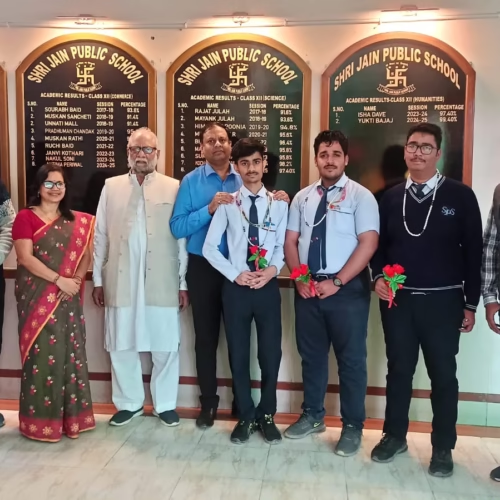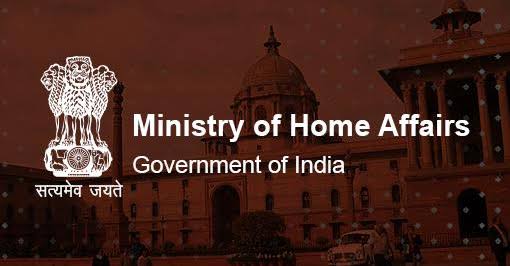ज्योति मल्होत्रा के बाद पलवल से दो और यूट्यूबर गिरफ्तार
पाकिस्तान हाई कमीशन का वीज़ा डेस्क निकला जासूसी का अड्डा, पंजाब-हरियाणा बन रहे टारगेट
BY DEFENCE JOURNALIST SAHIL | T.I.N. NETWORK
पलवल, हरियाणा – अक्टूबर 2025
हरियाणा के पलवल में पुलिस की एक बड़ी कार्रवाई ने एक बार फिर पाकिस्तान हाई कमीशन (PHC) के जासूसी नेटवर्क की पोल खोल दी है। पुलिस ने दो यूट्यूबर—वसीम अकरम और तौफीक—को गिरफ्तार किया है। दोनों पर आरोप है कि वे पाकिस्तानी खुफिया एजेंसी आईएसआई के लिए काम कर रहे थे और वीज़ा डेस्क के जरिए चल रहे नेटवर्क का हिस्सा बने हुए थे। इन दोनों ने न सिर्फ लोगों से पैसे लेकर वीज़ा दिलाने का लालच दिया, बल्कि सिम कार्ड, ओटीपी और भारतीय सेना से जुड़ी संवेदनशील जानकारी भी पाकिस्तान तक पहुंचाई।
यह गिरफ्तारी ऐसे समय हुई है जब कुछ ही महीने पहले मशहूर यूट्यूबर ज्योति मल्होत्रा का मामला सामने आया था। उससे पहले पंजाब और हरियाणा के अलग-अलग जिलों—मलेरकोटला, नूह और रोपड़—से भी ऐसे कई जासूसी नेटवर्क का खुलासा हो चुका है। हर जगह पैटर्न एक ही रहा है—पाकिस्तान हाई कमीशन का वीज़ा डेस्क रिश्वत और लालच के जरिए भोले-भाले युवाओं को जाल में फंसाता है और उन्हें धीरे-धीरे जासूस बना देता है।
कैसे फंसा वसीम अकरम?
वसीम अकरम, पलवल जिले के कोट गांव का रहने वाला है। पढ़ाई से सिविल इंजीनियर, लेकिन महत्वाकांक्षाओं और पैसों की लालच ने उसकी जिंदगी की दिशा बदल दी। पुलिस जांच में पता चला कि उसकी पाकिस्तान यात्रा ही उसके लिए जाल साबित हुई।
मई 2022 में जब उसने पाकिस्तान का वीज़ा अप्लाई किया तो उसका आवेदन खारिज हो गया। लेकिन तभी पाकिस्तान हाई कमीशन के एक कर्मचारी जाफर उर्फ़ मुजम्मिल हुसैन ने उससे 20,000 रुपये की रिश्वत ली और तुरंत वीज़ा जारी कर दिया। वसीम पाकिस्तान के कसूर शहर गया और लौटने के बाद भी जाफर से उसका संपर्क बना रहा। यही रिश्ता आगे चलकर जासूसी गतिविधियों में बदल गया।
धीरे-धीरे वसीम ने लोगों को झांसा देना शुरू कर दिया कि वह पाकिस्तान का वीज़ा दिला सकता है। लोग भरोसे में आ गए और वसीम के अकाउंट में 4 से 5 लाख रुपये तक जमा हुए। लेकिन इन पैसों का बड़ा हिस्सा सीधे पाकिस्तान हाई कमीशन के कर्मचारियों और उनके जरिए आईएसआई एजेंटों तक पहुंचा।
तौफीक की भूमिका
वसीम का साथी तौफीक, अलीमेव गांव का निवासी है। वह वसीम के साथ मिलकर वीज़ा रैकेट चलाने लगा। दोनों ने न सिर्फ वीज़ा के नाम पर ठगी की, बल्कि सिम कार्ड और बैंकिंग ओटीपी पाक एजेंटों को उपलब्ध कराए। इससे आईएसआई एजेंट भारत में लंबे समय तक छिपकर रह सके और अपनी खुफिया गतिविधियां चला सके।
जांच में खुलासा हुआ कि पाकिस्तानी एजेंट टूरिस्ट वीज़ा पर भारत आते और यहीं रहकर सिम कार्ड व अन्य स्थानीय सुविधाओं की मदद से जासूसी करते।
पुराना पैटर्न फिर दोहराया गया
यह मामला नया नहीं है। इससे पहले पंजाब और हरियाणा के कई इलाकों से यही नेटवर्क सामने आ चुका है।
- मलेरकोटला (पंजाब): यहां PHC का कर्मचारी दानिश, जिसे एहसान-उर-रहीम नाम से भी जाना जाता है, पकड़ा गया था। उसने वीज़ा दिलाने के बहाने लोगों से भारतीय सेना की जानकारी निकलवाई और बदले में 10,000 से 20,000 रुपये दिए जाते थे।
- नूह (हरियाणा): यहां अरमान नामक युवक गिरफ्तार हुआ था जिसने पाक अधिकारियों को सिम कार्ड दिए और डिफेंस एक्सपो के वीडियो भेजे। इससे पता चला कि टेलीकॉम सुविधाएं PHC की जासूसी रणनीति का अहम हिस्सा हैं।
- रोपड़ (पंजाब): यूट्यूबर जसबीर सिंह महल को गिरफ्तार किया गया था, जिस पर सेना से जुड़ी जानकारी पाक एजेंटों को देने का आरोप है।
ज्योति मल्होत्रा का मामला भी इसी पैटर्न का हिस्सा रहा, जहां सोशल मीडिया के माध्यम से पाक एजेंटों ने नजदीकियां बढ़ाईं और फिर गुप्त सूचनाओं की मांग की।
क्यों पंजाब और हरियाणा ही निशाने पर?
अधिकारियों का मानना है कि पाकिस्तान की नजर पंजाब और हरियाणा पर इसलिए है क्योंकि इन दोनों राज्यों में देश की सबसे बड़ी सैन्य छावनियां, एयरफोर्स स्टेशन, मिसाइल सिस्टम और रक्षा प्रतिष्ठान मौजूद हैं।
जैसे ही कोई शख्स पाकिस्तान जाता है, वहीं से जाल बुनना शुरू हो जाता है। वीज़ा में मदद, पैसों का लालच और रिश्वत का रास्ता—इन तीन हथियारों से पाकिस्तान युवाओं को फंसाता है। फिर उनसे धीरे-धीरे ऐसी जानकारी मांगी जाती है, जो राष्ट्रीय सुरक्षा के लिहाज से बेहद संवेदनशील होती है।
बड़ा नेटवर्क, साफ पैटर्न
तीन बातें साफ नज़र आती हैं—
- वीज़ा के बहाने रिश्वत: PHC अधिकारी पहले वीज़ा जारी करने के नाम पर रिश्वत लेते हैं।
- जासूसी में धकेलना: जिन लोगों को वे मदद करते हैं, उन्हें बाद में गुप्त जानकारी देने के लिए मजबूर किया जाता है।
- छोटे पैसों का लेन-देन: बदले में उन्हें 10,000 से 20,000 रुपये जैसे छोटे-छोटे ट्रांजैक्शन भेजे जाते हैं ताकि पकड़े न जा सकें।
अब तक की कार्रवाई
भारत ने इस नेटवर्क के कई अहम चेहरों को देश से बाहर कर दिया है। जाफर और दानिश जैसे पाकिस्तान हाई कमीशन कर्मचारियों को भारत ने पर्सोना नॉन ग्राटा (PNG) घोषित कर निष्कासित किया। लेकिन इसके बावजूद नेटवर्क की सक्रियता कम नहीं हुई।
हर नई गिरफ्तारी यह साबित कर रही है कि पाकिस्तान हाई कमीशन का वीज़ा डेस्क अब महज कागजी दफ्तर नहीं, बल्कि आईएसआई के लिए एक खुफिया हथियार बन चुका है।
इनसाइड स्टोरी क्या कहती है?
इनसाइड स्टोरी साफ बताती है कि सोशल मीडिया और यूट्यूब जैसे प्लेटफॉर्म अब सिर्फ मनोरंजन के लिए नहीं रहे। आईएसआई इन्हीं प्लेटफॉर्म्स के जरिए युवाओं तक पहुंच बना रही है। पहले दोस्ती, फिर वीज़ा में मदद और फिर छोटे पैसों का लालच देकर गुप्त जानकारी निकलवाना—यही है पूरा गेम प्लान।
हर गिरफ्तारी भारत की सुरक्षा एजेंसियों के लिए चेतावनी है कि पाकिस्तान लगातार रणनीति बदलते हुए पंजाब और हरियाणा को टारगेट कर रहा है। ज्योति मल्होत्रा से लेकर वसीम अकरम और तौफीक तक, यह सिलसिला दिखाता है कि जासूसी नेटवर्क कितना गहरा और खतरनाक है।
निष्कर्ष:
ज्योति मल्होत्रा केस के बाद पलवल में हुई ये गिरफ्तारी साबित करती है कि पाकिस्तान की खुफिया एजेंसी आईएसआई भारत के भीतर गहरे नेटवर्क बुन रही है। वीज़ा डेस्क के जरिए रिश्वत, यूट्यूबर और सोशल मीडिया इन्फ्लुएंसरों को टारगेट करना, और फिर उनसे सैन्य जानकारी निकलवाना—यह रणनीति भारत की सुरक्षा के लिए गंभीर खतरा है।
BY DEFENCE JOURNALIST SAHIL | T.I.N. NETWORK
YouTubers Arrested in Palwal: New Exposé Links Pakistan High Commission Visa Desk to Expanding Spy Network
Palwal/Chandigarh/Delhi, October 2025 – In what is rapidly emerging as one of the most alarming espionage patterns of recent years, the arrest of two YouTubers from Haryana has once again spotlighted how Pakistan High Commission’s visa desk in New Delhi has been converted into a hub for spying operations inside India.
On September 30, 2025, the Haryana Police arrested Wasim Akram, a civil engineer-turned-YouTuber from Kot village in Palwal, and Taufiq, a resident of Alimev village, on charges of espionage. Both men were allegedly part of a larger spy network that has been systematically run from the Pakistan High Commission (PHC), with its visa office serving as the primary point of contact, manipulation, and recruitment.
The revelations echo earlier high-profile cases – including the arrest of travel vlogger Jyoti Malhotra from Hisar, as well as suspects from Malerkotla, Ropar, and Nuh – suggesting a clear, structured pattern in Pakistan’s intelligence operations against India.
The Visa Desk: A Front for Espionage
The investigation has revealed chilling details about how the PHC’s visa section has been weaponised. What should have been a bureaucratic office for processing documents has instead become a marketplace of corruption, recruitment, and covert intelligence gathering.
Wasim and Taufiq were allegedly engaged in collecting money from people seeking Pakistani visas. They charged hefty bribes, a significant portion of which was funneled to PHC employees who acted as handlers. According to investigators, a staffer named Danish, also known by the alias Ehsan-ur-Rahim, served as the crucial link between Indian recruits and Pakistani intelligence operatives.
Sources revealed that once funds reached Pakistani officials, ISI agents were deployed into India, often on tourist visas, where they would conduct surveillance, recruit more locals, and pass along sensitive data.
How Wasim Akram Was Trapped
Wasim’s descent into espionage began with his own failed visa attempt. Initially denied entry to Pakistan, he allegedly paid ₹20,000 in bribes to a PHC staffer identified as Jafar alias Mujammil Hussain. The visa was approved soon after.
In May 2022, Wasim traveled to Kasur in Pakistan. Even after returning to India, he remained in constant touch with Jafar via WhatsApp. What started as personal correspondence soon transformed into active collaboration.
Investigators claim Wasim collected between ₹4–5 lakh from villagers under the pretext of arranging visas, transferring a major share to PHC officials. In addition, Wasim and Taufiq reportedly provided Pakistani agents with SIM cards, OTP details, and sensitive information related to Indian Army deployments and defence infrastructure.
The Recurring Pattern Across Punjab and Haryana
The Palwal arrests mirror earlier busts in Punjab and Haryana, exposing a consistent modus operandi:
- Malerkotla (Punjab): Danish/Ehsan-ur-Rahim, a PHC employee, was exposed for using visa deals to extract military-linked information. Locals were promised Pakistani visas in exchange for sharing photographs, videos, and operational details of Indian defence installations. Transactions were routed through UPI, often in the range of ₹10,000–₹20,000.
- Nuh (Haryana): A man named Arman was arrested after supplying Pakistani officials with SIM cards and secretly recording videos of the Defence Expo in India. These recordings were later traced to ISI contacts.
- Ropar (Punjab): YouTuber Jasbir Singh Mahal was caught passing information across the border.
In each case, the common thread was the PHC visa office, acting as a gatekeeper, recruiter, and funnel for espionage activities.
Why Punjab and Haryana Are Prime Targets
Security experts and investigators underline that Punjab and Haryana are high-value targets for Pakistan’s spy network for multiple reasons.
Both states are home to major cantonments, Air Force bases, missile regiments, and critical defence infrastructure. From Ambala to Hisar, Sirsa to Pathankot, the region is dotted with military assets central to India’s security strategy.
Locals seeking visas for pilgrimage or family visits to Pakistan are systematically lured with money, promises of quick approvals, and threats of visa denial. Many of them, with little awareness of the larger game, are coerced or enticed into providing SIM cards, banking access, and troop movement details.
Financial and Telecom Tools of Espionage
What stands out in this network is its reliance on financial micro-transactions and telecom resources. Rather than large sums that could trigger suspicion, recruits are compensated with small payments – typically under ₹20,000 – often through digital platforms like UPI.
Telecom plays an equally critical role. By obtaining SIM cards in bulk through local recruits, Pakistani handlers establish untraceable communication channels, bypassing formal scrutiny. OTP sharing further allows them to create and operate fake accounts within India, shielding the real operatives.
Government Crackdown and Diplomatic Fallout
In response to these revelations, India has already declared PHC officials like Jafar and Danish “persona non grata” (PNG), forcing them to leave the country. Yet, the recurring arrests indicate that the spy ring is deeply entrenched and adaptive.
The Indian establishment views these developments not merely as isolated incidents but as part of a calibrated ISI strategy to weaken India from within by exploiting its civilian population.
Diplomatic channels are buzzing with demands for accountability. New Delhi is expected to once again raise the misuse of diplomatic immunity and facilities at the PHC in bilateral and multilateral forums.
Echoes of the Jyoti Malhotra Case
The Palwal arrests come just months after the dramatic arrest of Hisar-based travel YouTuber Jyoti Malhotra, who was accused of passing sensitive data to Pakistani intelligence operatives under the same visa-desk racket.
Her arrest shook the digital content community, as it exposed how social media influencers were being targeted as intelligence assets – leveraging their cross-border appeal, mobility, and social connections.
The latest arrests of Wasim and Taufiq confirm that the Jyoti Malhotra case was not an isolated aberration but part of a larger, well-orchestrated espionage machine.
A Clear Pattern, A Growing Threat
The pattern is now undeniable:
- Visa Application & Rejection: Locals apply for Pakistani visas. Rejections create desperation.
- Bribery & Contact: PHC employees solicit bribes for visa approvals, establishing personal ties.
- Recruitment & Tasking: Once trust is built, applicants are given small espionage tasks – arranging SIM cards, sharing videos, noting troop movement.
- Financial Incentives: Payments are made in small tranches to avoid detection.
- Entrapment & Continuity: Once compromised, recruits are trapped into sustained collaboration.
The Road Ahead
The Palwal arrests have once again exposed the vulnerability of India’s civilian population to foreign manipulation. The ISI’s exploitation of the PHC visa desk poses a dual challenge – not only a diplomatic headache but also a national security risk within India’s borders.
Security agencies are expected to intensify their counter-intelligence operations across Punjab, Haryana, and Delhi, while the Ministry of External Affairs is likely to press for stricter oversight of the Pakistan High Commission.
But as one senior official noted:
“This is no longer about isolated spies. This is about a network built on corruption, coercion, and community manipulation. Every new arrest confirms what we already suspect – the Pakistan High Commission is running an espionage hub right in the heart of New Delhi.”
👉 This investigative trail – from Hisar to Palwal, from Malerkotla to Nuh – has now laid bare a structured Pakistani design to infiltrate Indian society through money, mobility, and manipulation. The latest arrests prove that the story is far from over.









Add Comment